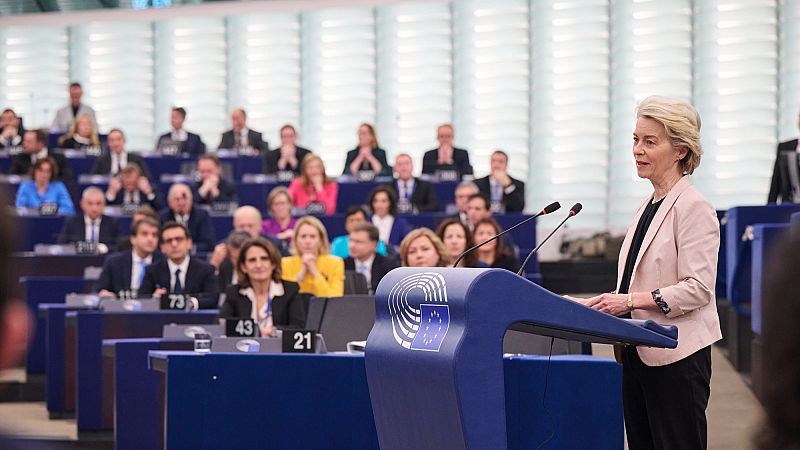
Next week, the European Parliament will hold discussions and cast votes on a "censure motion," which serves as a show of no confidence toward European Commission President Ursula von der Leyen and her team of commissioners.
Gheorghe Piperea, a Romanian Member of the European Parliament representing the far-right AUR party, asserts that he has gathered 73 signatures for his proposal—surpassing the mandatory threshold of at least ten percent of MEPs (which stands at 72) needed to trigger formal proceedings.
Piperea's office reports that 32 members of his political faction, the European Conservatives and Reformists (ECR), supported the initiative. Additional signatories were provided by right-wing parties including Patriots for Europe (6) and Europe of Sovereign Nations (26), along with several unaffiliated Members of the European Parliament (MEPs).
Internal sources indicate that the Parliament’s services are currently verifying and validating the signatures of the MEPs.
After the validation procedure concludes, President Roberta Metsola will officially notify Members of the European Parliament (MEPs) that a motion of censure has been submitted.
A full debate on the call for resignation must then be set for at least 24 hours following the announcement, and voting on the issue must occur no earlier than 48 hours after the debate begins.
According to parliamentary insiders speaking to Euronews, the debate may take place on Tuesday, 8 July, followed by a vote on Thursday, 10 July, as long as President Metsola formally presents the motion before the close of this week.
Nevertheless, any signatory Member of the European Parliament may retract their backing for the proposal at any stage. Should the required one-tenth threshold fall short again, proceedings will be suspended immediately.
The motion of censure would require support from at least two-thirds of the votes cast, which must also represent a majority of all Members of the European Parliament (MEPs), in order to pass.
An unlikely vote of no confidence
This specific proposal stands a slim chance of getting passed, since the MEP who introduced it has admitted so during a conversation with Euronews.
"There will be an opposition vote against the proposal: I’m certain about this since most members still support von der Leyen. Although many within this group express dissatisfaction toward her leadership, they won’t push for her resignation—at least not yet," Piperea stated.
Nonetheless, the Romanian Member of the European Parliament expressed hope that the move would "unlock new possibilities," inspiring additional votes of no confidence in the coming months. He stated, "Having such a democratic procedure is essential to push for these discussions. Even if my proposal doesn’t pass, I believe others may follow—and eventually one might succeed."
The vote of no confidence is based on three primary allegations, with the initial one focusing on text message exchanges between European Commission President Ursula von der Leyen and Pfizer’s Chief Executive Officer, Albert Bourla, throughout discussions surrounding the procurement of coronavirus vaccines.
"The EU Court of Justice in Luxembourg ruled that the European Commission must release those SMS messages [...]. However, the European Commission turned down the request. This goes back to the principle of checks and balances in democratic systems: refusing to respect a judicial ruling ultimately undermines the rule of law," argues Piperea.
Additional allegations involve claims of misuse of post-pandemic funding and an accusation that the European Commission sought to advance its environmental agenda by funding NGOs to influence Members of the European Parliament through lobbying efforts; both charges have been refuted by the Commission.
